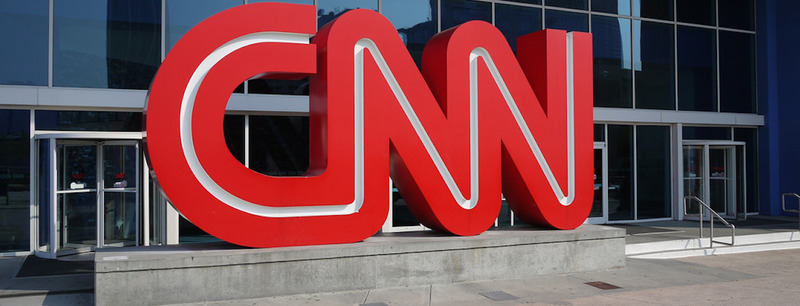Sign up for the daily CJR newsletter.
Last Monday, the United Nations released an alarming report on climate change, warning the problem is “widespread, rapid, and intensifying” and “code red for humanity.” CNN covered the story in eleven reports spanning thirty-three minutes. But it all occurred outside of primetime hours––when most viewers are tuned in.
When the report was released at 4am on the East Coast, CNN’s chief climate correspondent, Bob Weir, was on standby to summarize the findings. Each show between 4am and 11am did a segment on the UN report. The last full segment on the subject aired during the 1pm hour, though the 3pm-hour host, Victor Blackwell, discussed the report during one of his interviews.
Then the coverage dropped off. From 3:30pm up through almost midnight, no host focused on the report: not Erin Burnett, nor Anderson Cooper, nor two hours of Wolf Blitzer. At 9pm, with Chris Cuomo on vacation, CNN aired an interview with Rep. Alexandria Ocasio-Cortez; it was most likely pre-taped, so they didn’t discuss the UN report, nor did they discuss the Green New Deal, the congresswoman’s signature bill. At 10pm, Don Lemon tucked a segment on the report at the end of his second hour, starting around 11:45pm.
It was a stark divide between day and evening. Across the cable news sphere, primetime morphs into opinion and polarizing narratives, while dayside presents more news and facts. On Monday, if you were able to watch CNN during the day (not a luxury open to many), then you would have learned about the climate report, Covid hotbeds throughout the country, Taliban gains in Afghanistan, and the Dixie fire in California. Conversely, during primetime, nearly every show led with the same topic: CNN’s foil-du-jour, Ron DeSantis.
The Republican governor of Florida, as CNN said over and over, is fighting mask mandates. Criticism of this policy is merited, but repetitive coverage has a polarizing effect. I know, I know––it’s the lifeblood of cable news, which thrives on nighttime opinion. Nonetheless, it stands out in contrast to the dayside shows, which do not emphasize easy political narratives.
Primetime resorts to opinion at night because it’s the most competitive time of day when they can charge the most for advertisements. They’re scraping for eyeballs. And since television is a visceral medium––TV audiences aren’t necessarily logical––it’s easier to keep them watching with material that makes them angry (politics), rather than depressed (melting ice caps).
In 2018, Chris Hayes tweeted that climate change is a “palpable ratings killer. so the incentives aren’t great.” (And he would know: in 2016, Hayes produced an Emmy-nominated series on the subject.)
But the audience numbers show, disturbingly, how few viewers they’re fighting over. Fox News sits comfortably at number one most nights, so CNN and MSNBC battle it out for the number two spot––and their margins are tight. The last week of July, the average difference between CNN and MSNBC was only about 7,000 in the key demographic (ages 25-54). But CNN’s total audience in primetime averaged 706,000. In other words, they’re sacrificing their integrity as a news organization to cling to as little as one percent of the total audience.
Recently, MSNBC renamed dayside from “MSNBC Live” to “MSNBC Reports”; you could argue the effort is paltry, as if the audience will understand that it’s supposed to signify fact-based reporting, rather than opinion. But on CNN, there is not even an effort to make that distinction. While audiences may be savvy enough to intuit the difference, most people don’t know what they’re missing. That was certainly the case last Monday, when the network omitted the report about our warming planet.
Daytime producers fighting to put news on the air should be credited. At the same time, they prove that CNN understands how to do their job––and that sometimes, they choose not to.
Has America ever needed a media defender more than now? Help us by joining CJR today.







